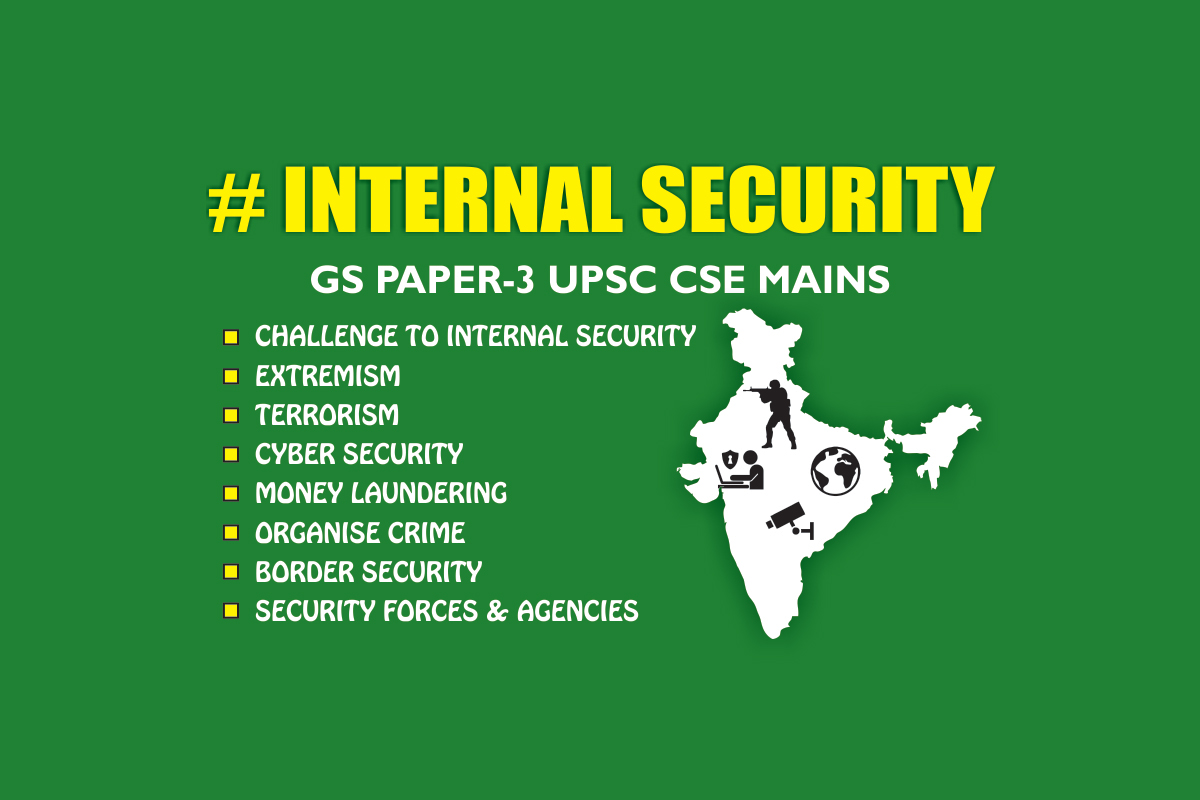Concept of National Security
- National Security is a state or condition where a nation’s most cherished values and beliefs, its way of life, its institutions of governance and its unity, welfare, and well-being as a Nation and of people are permanently protected and continuously enhanced.
- In other words, National securityrefers to the security of a nation state, including its citizens, economy, and institutions, and is regarded as a duty of government.
Dimensions of National Security
- Originally conceived as protection against military attack, national security is now widely understood to include non-military dimensions, including economic security, energy security, environmental security, food security, cyber security
- The basic elements of National security are as follows:
Physical Security
- In practice, national security is associated primarily with managing physical threats and with the military capabilities used for doing so.That is, national security is often understood as the capacity of a nation to mobilise military forces to guarantee its borders and to deter or successfully defend against physical threats including military aggressionand attacks by non-state actors, such as terrorism
Territorial Integrity
- Nation should protect itself from all illegal intrusions and resource exploitation.
Socio-political Security: It has the two components:
- Maintenance of public order- Disturbed public order has a bearing on political stability and people blame the government for failing to maintain the public order and demand change in government
- Freedom from oppression and crime at the hands of certain people of the society
Economic Security: Nation to have a stable income or other sources to support a standard of living now and in the near future.
Environmental and Ecological Security: Effective conservation of natural environment in the face of industrial and agricultural expansion and population growth.
Energy Security: To have access to cheap and renewable sources of energy.
Moral and Spiritual Consensus: All People should have a national vision and a national pride.
Internal and External Security:
- The two aspects of National Security are Internal and External Security. It is important to understand the difference between them:
Internal Security
External Security
It is the security of the country from internal actors as well as foreign actors, within its boundaries It is the security of the country from aggression by a foreign country. Its maintenance is the sole Its maintenance is the sole responsibility of the State police, supported by Central police forces and armed forces. responsibility of the armed forces. It falls under the purview of Ministry of Home Affairs It falls under the purview of Ministry of Defence Fighting from internal forces require an unconventional set of skills of warfare Fighting from external forces involves conventional warfare skills. Police efforts for internal security maintenance may lead to issues of human Human rights issues are generally neglected while fighting a war against foreign country. Internal troubles are often a result of aggrieved Indian citizens because of an inequitable development process External troubles are often a result of boundary disputes or economic competition between two countries.


This is concise and useful.Thanks for sharing.